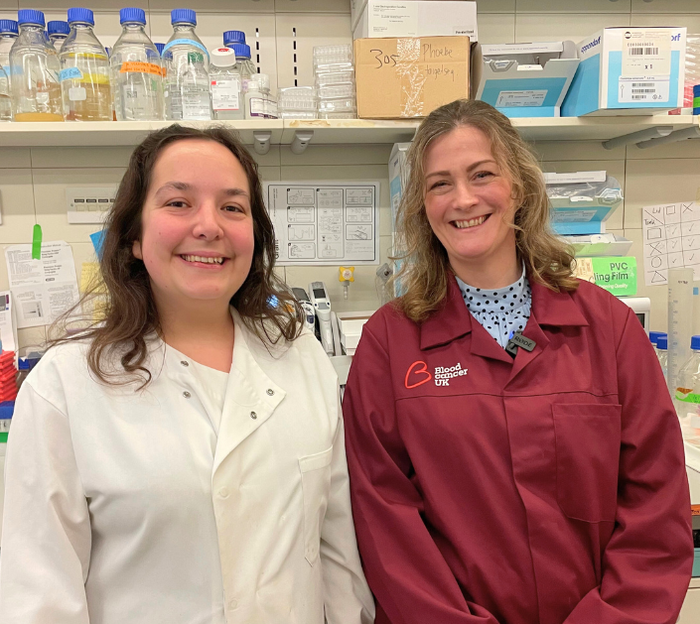Understanding what causes blood cells to become cancerous
Clonal haematopoiesis of indeterminate potential (CHIP) is where small genetic changes in some of our blood cells mean they could become cancerous. Dr Payne and Dr Lubin plan to develop a new tool to help identify which blood cells have these small genetic changes. This could help find new ways to prevent blood cancers from developing.

Dr Beth Payne & Dr Alexandra Lubin
The challenge
CHIP is a normal part of getting older, where genetic changes occur in some of our otherwise healthy blood cells. These genetic changes mean we have a mix of regular blood cells alongside blood cells which have the potential to become cancerous. These potentially cancerous cells blood cells have a genetic mistake that’s similar to what's seen in blood cancer. Usually they don't cause any issues, but sometimes they can turn into blood cancer.
The project
Even though many people with CHIP have normal blood counts, some of these blood cells have very small, subtle changes in their genetic instructions which means they don’t behave as they should. In this pilot project, Dr Payne and Dr Lubin want to understand how these subtle genetic changes in CHIP better in otherwise healthy cells. Researchers use specialised tools and technology to figure out which cells have these small, subtle changes and how they're different from normal blood cells. Dr Payne and Dr Lubin plan to develop an improved tool to understand how these genetic changes affect the instructions inside the blood cells which mean they behave differently.
The future
If successful, they hope they can begin to understand genetic changes in normal, healthy bone marrow. This will help them conduct further research to understand the differences between CHIP and unhealthy cells. The knowledge gained could help them and others to discover new ways to prevent blood cancers from developing in people with CHIP in the future.
Funding
This project is part of the innovative pilot grant round.
